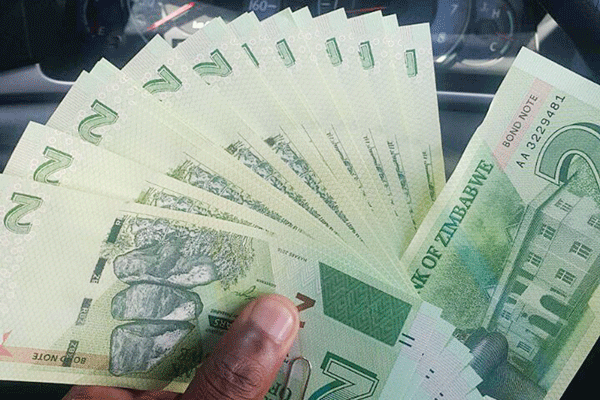
Zimbabwe’s money market has been hit by counterfeit bond notes largely found on the parallel market where unscrupulous cash dealers are preying on unsuspecting cash seekers.
BY FIDELITY MHLANGA
The prevalence of the counterfeit notes comes at a time when cash is becoming more and more scarce, with the US dollar now a very scarce commodity.
Standardbusiness heard that fake money dealers were stationed mostly in the Harare’s central business district’s Eastgate mall and usually operate during the late hours of the day.
One of the victims, Ishmael Jaricha, said he was duped when he changed his $100 to bond notes at the Eastgate mall last week. Jaricha was given fake $5 bond notes worth $130 at Eastgate mall during the late hours of Sunday and reported the case at Harare Central police station.
“After I was duped, I reported to the central police under case number CR 553/12 17,” he said.
“They are still looking for the culprit. It’s three days now and they have not arrested the person who defrauded me. The police are calling me every day to accompany them to Eastgate to look for him.
“The guy is known by other money changers. Each time we arrive at Eastgate we are told he has left.”
- Chamisa under fire over US$120K donation
- Mavhunga puts DeMbare into Chibuku quarterfinals
- Pension funds bet on Cabora Bassa oilfields
- Councils defy govt fire tender directive
Keep Reading
Efforts to get a comment from police spokesperson Charity Charamba were unsuccessful on Friday.
Money changers flooded back onto the street last month following the military intervention that saw a change in the political landscape aided by reduced police presence on the streets.
The street invasion by illegal currency traders happened despite the promulgation of legislation that criminalises the selling of cash on the black market.
Under the regulations gazetted in October this year through Statutory Instrument (SI) 122A of 2017- Exchange Control (Amendment) Regulations 2017 (No 5), police are now empowered to arrest illegal money-changers and seize whatever currency would be in their possession.
Under the law, offenders of illegal cash and foreign currency trading face a mandatory 10-year jail term while their cash is forfeited to the state and their bank accounts frozen.
This paper understands that the cash dealers work as syndicates such that after duping a victim, they follow them to nearby supermarkets to ensure that they don’t use fake notes within the vicinity.
They offer to swipe their cards for victims in exchange of fake notes to ensure that the fake notes are not detected in the supermarkets close by.
Contacted for comment, Consumer Council of Zimbabwe executive director Rosemary Siyachitema said she was not aware of the circulation of counterfeit notes in the economy.
“We have not received reports of fake bond notes but when they [bond notes] were introduced last year, we went around the country together with RBZ educating the public about the key features of the currency, “she said.
Deputy Finance minister Terrence Mukupe said he was not aware of the existence of fake notes circulating in the market but promised to check with the central bank and to take action.
“I have not come across that. I would have to check with the central bank but I personally have not come across such a report,” he said.
“That’s news to me, I will check with the central bank and if they are there and if it’s happening, I am sure the long arm of the law shall catch up with them.”
Standardbusiness did not get responses from RBZ governor John Mangudya on the issue last week.










